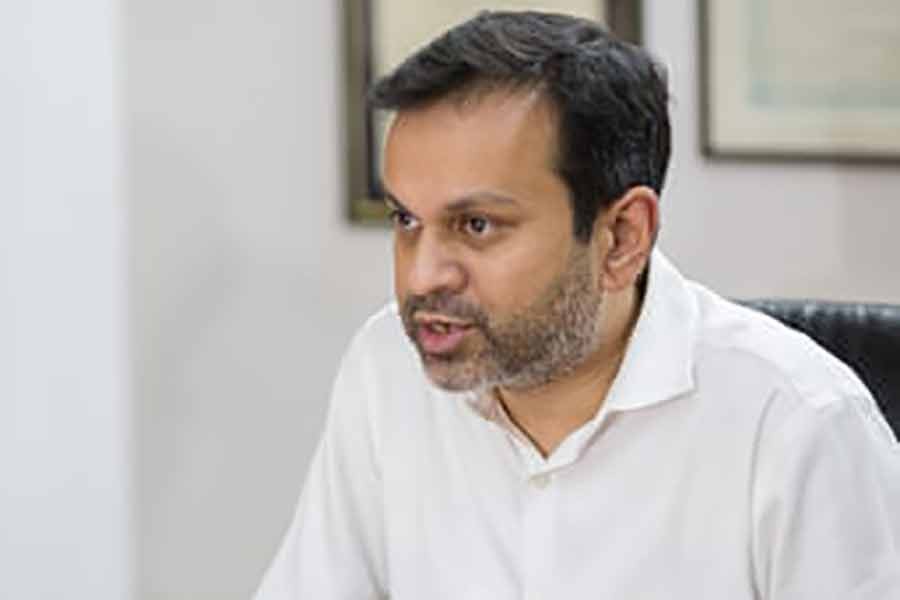The BRAC has described a decision, taken by the United Kingdom to cut funding to the world’s largest non-governmental development organisation, as “catastrophic”.
Asif Saleh, executive director of BRAC Bangladesh, said the decision is a “gut punch” after a successful 10-year £450m partnership, reports The Guardian.
He also said the fund cuts will leave hundreds of thousands of girls without an education, millions of women and girls without access to family planning and hundreds of thousands of people in extreme poverty without support.
Saleh’s comments followed an announcement on Friday that the UK would spend an extra £430m on girls education in 90 countries over the next five years. The announcement, made at the G7 summit, prompted accusations of hypocrisy. Sarah Brown, chair of global children’s charity Theirworld, called the funding a “drop in the ocean” compared to the scale of the global education crisis and in the face of “savage cuts to the international aid budget”.
Evidence submitted by BRAC to the international development committee’s investigation into the aid cuts described the withdrawal of support as “catastrophic” for the tens of thousands in Bangladesh who live on under a dollar a day.
“The dramatic fall is completely unexpected,” Saleh said. “It’s like a gut punch. We did not anticipate it would be a complete withdrawal from the partnership. From a commitment of £200m over five years to absolutely nothing – it’s a mistake.”
About 16 million Bangladeshis have slipped into extreme poverty since the pandemic, and the World Bank estimates an additional 150 million people globally will be in extreme poverty by 2021 because of Covid-19.
With British support, BRAC ran the largest non-formal school programme in Bangladesh from which 12 million children have graduated. A world-renowned programme, the “graduation model”, was also developed with the help of UK aid. It has lifted 2 million households out of extreme poverty in the country and is used in Ethiopia, Ghana, India, Pakistan, Honduras and Peru.
Saleh said that, while he expected a cut, Brac’s alignment with the government’s stated priorities – girls’ education, poverty reduction and addressing the climate crisis – made him hope some of it would continue.
Figures calculated by Save the Children estimate the aid cuts in education between 2019-20 and 2021-22 to be 36 per cent, from £821m to £528m. Humanitarian assistance and water and sanitation will be reduced by an estimated 45 per cent and 47 per cent respectively.
The Foreign Commonwealth and Development Office (FCDO) withdrawal from BRAC strategic partnership arrangement (SPA) will mean a “dramatic scaling down” of programmes running since 2011. The SPA has helped 110 million people in Bangladesh, with 4 million children enrolled in its schools that actively seek girls and children with disabilities.
BRAC’S programmes have also been cut in other countries, Saleh said.
“There have been programmes that have been shut down with 90 days’ notice,” said Saleh. “We are trying to fill the gaps. Our health programme is continuing because of Covid. Our ultra-poor graduation programme, our education programme, is being scaled down. I’m having to make tough calls. When I’m not being able to start schools, when I’m having to stop programmes to reduce child marriage, to those people, it will be seen as a betrayal.”
Saleh said FCDO officials in Bangladesh had made the case for “phase 3” of the partnership, with additional funding from Australia and Canada. But last month, Saleh was told nothing would be available for 2021-22.
Chief economist for FCDO, Rachel Glennerster, considered the Brac model a “best buy” in terms of development, according to a report by the Independent Commission for Aid Impact, in 2018. The report found that a consultation with partners “confirms progress in achieving results that align with UK priorities, at scale, in the right places and to the right target groups”.
“The UK has given support to a global south organisation that has delivered and provided transparency,” said Saleh. “To take it away so abruptly sends the wrong message. The UK should not abandon the amazing reputation it has built as a global development powerhouse. Britain has been a great friend. This needed a thoughtful response. These are people’s lives.”
The Guardian approached the FCDO for comment but it was unable to respond in time for publication.


